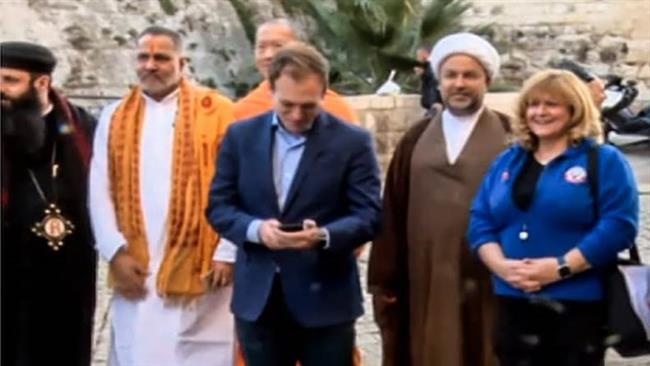
RNA - The scholars, in a statement released on Sunday, decried any attempts by the ruling Al Khalifah regime aimed at normalization of diplomatic relations with “the usurper Zionist regime (of Israel).”
“We feel a strong sense of religious responsibility to categorically reject any form of normalization of ties with the Zionist entity. We strongly condemn such a move,” the statement pointed out.
Meanwhile, Bahrain's dissolved main opposition bloc, the al-Wefaq National Islamic Society, has censured any bid by the Manama regime to establish ties with Israel.
The group emphasized that any such effort is a betrayal of the Palestinian cause.
A Bahraini civil society group, which calls itself "This is Bahrain", has defended sending a delegation to Israel in a statement published by Bahrain’s state news agency BNA.
The group said the visit was a private initiative to “Israel and occupied Jerusalem al-Quds,” and had the backing of Bahraini monarch King Hamad bin Isa bin Salman Al Khalifah.
The controversial visit has prompted the hashtag #Bahrain_resists_normalisation, in which twitter users declaring their opposition to what some called an “act of treason” against Palestinians and Bahrainis.
The trip came as US President Donald Trump announced his decision to recognize Jerusalem al-Quds as Israel’s capital and relocate the US embassy in the occupied lands from Tel Aviv to Jerusalem al-Quds on December 6.
The dramatic shift in Washington’s Jerusalem al-Quds policy triggered demonstrations in the occupied Palestinian territories, Iran, Turkey, Egypt, Jordan, Tunisia, Algeria, Iraq, Morocco and other Muslim countries.
On Sunday, violent clashes erupted outside the US Embassy in the Lebanese capital city of Beirut during a protest against US president’s decision to officially recognize Jerusalem al-Quds as Israel’s capital.
Demonstrators burnt tires as well as the US and Israeli flags as they pushed to break through a barbed wire erected by security forces around the embassy complex.
Security forces fired tear gas and water cannon to disperse the angry protesters.
Jerusalem al-Quds remains at the core of the Israeli–Palestinian conflict, with Palestinians hoping that the eastern part of the city would eventually serve as the capital of a future independent Palestinian state.
847/940